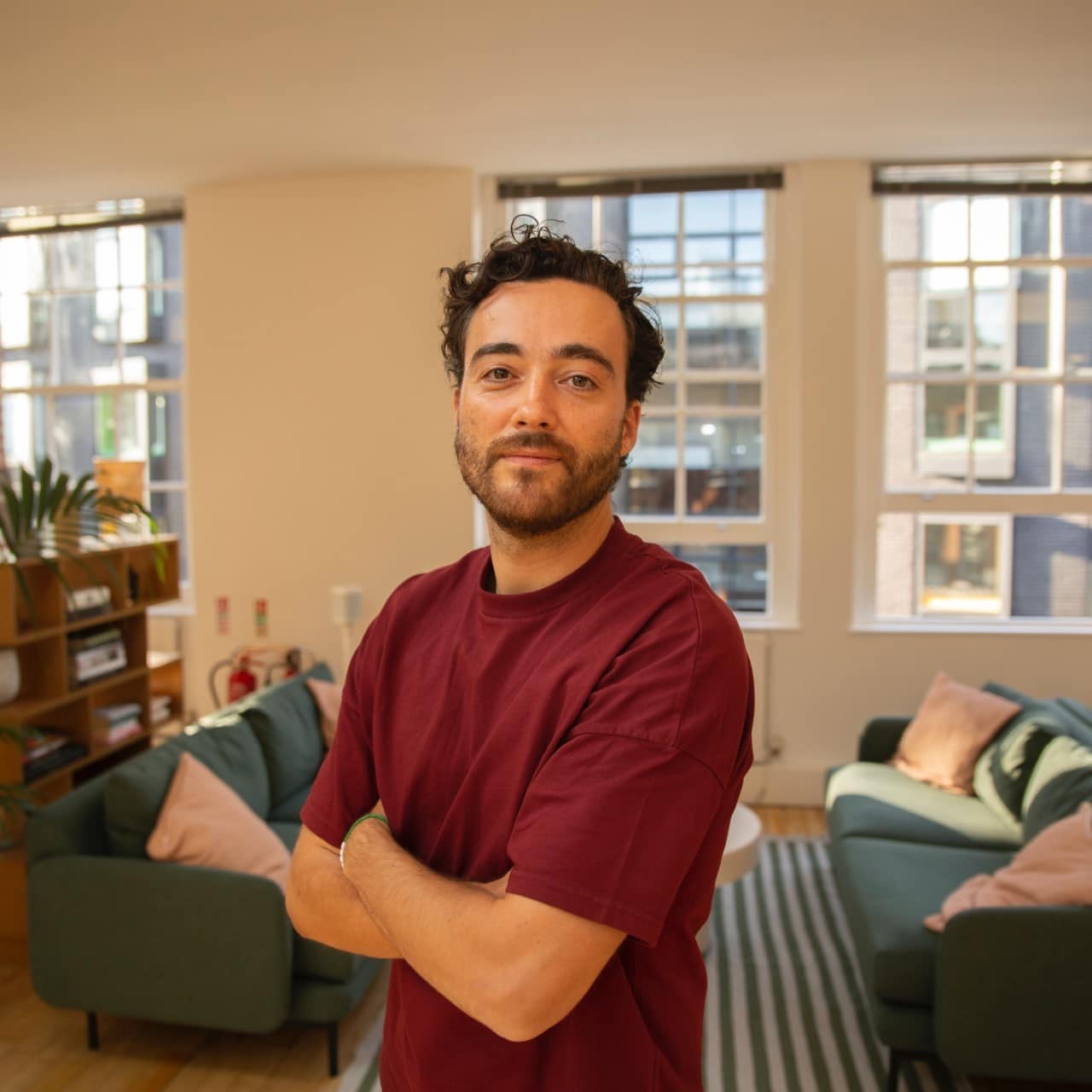Leadership Lessons with… Charlie Tarr, Founder & CEO of Woodrow
Why communications leaders have forgotten their why, how diversity and inclusion starts with your company culture, and the advice younger professionals should adhere to. We recently spoke with Charlie Tarr, Founder and CEO of Woodrow – one of Europe’s fastest-growing communications consultancies – about his journey to impact-driven comms, and the biggest changes he’s seeing in the industry.
Take a look.

What drove you to forge a career in issues-based comms?
My career had been in documentary making. But I’d always been interested in how the world works, so I studied for a Masters in International Relations. I wanted to bring my love of storytelling together with my interest in wider issues.
I joined a small communications agency and was thrust into campaigns deeply rooted in topics that truly mattered. It felt like this defined me as a professional. I was working on human rights cases for political prisoners, arbitrary detention cases, the Ebola crisis and much more.
That was a profound moment in understanding the power of this job to do good.
What personal attributes do you think have helped you succeed?
Curiosity. Being open to new ways of thinking and challenging yourself to meet different types of people, especially those smarter or more experienced than you. And stepping out of your comfort zone. If you put yourself in a situation where you may not be able to do something, regardless of outcome, you’ll be surprised at the power that can have.
Resilience. As an entrepreneur you’ll be up against bigger players with a team to lead, and likely will need to build the plane as it flies. Things will go wrong. Confidence will be knocked. Doubts will creep in. But you must continue to back yourself. Leaders often talk about their disruptive vision, but without resilience, you won’t succeed.
What do you think are the key qualities needed from leaders in this space in 2024 and beyond?
We’ve all got a bit lost about why we do this job, which is ironic as communicators. For me, the value of communications lies in the ability to influence conversations that define how we live and work, and create a “future-positive world.”
If we look at the deep-seated societal, environmental, and economic challenges facing the world today, it’s clear we need to better influence conversations.
Humility is so important too. Not having all the answers is fine. But how do we bring in brilliant minds and organisations other than yourselves for our clients to fix the big problems? Humility as leaders means hiring people who are smarter than you and aren’t afraid to challenge your ideas while developing their own.
How do you think the comms industry is evolving and what new roles and opportunities are you seeing?
The obsession over fame and counting media coverage like it’s the only currency is now clearly not the whole picture. If you tie comms purely to that one aspect, it quickly becomes arbitrary and I’m glad how we view coverage both client and agency side is changing.
We also need to look more at skills over roles. In almost every major technological evolution over the past 250+ years, jobs weren’t replaced, they increased. The conversation around AI right now is very binary for example; ultimately skills shift in line with advancements. The focus needs to be ensuring we have the skills to solve the problems of tomorrow.
Communications is now a business critical function. Reputation matters more than ever. Corporate culture and employee activism have exploded, driving the need to manage reputation externally and internally.
With an increasing focus on workplace mental health, how have you seen the industry supporting the wellbeing of its employees, and what have you seen work?
Any company that tries to handle their team’s mental health alone, when they themselves are not experts, is missing a trick.
We work with an external health provider for therapy and counselling that’s available to everyone, in addition to other methods of health and wellbeing support.
We also have office quiet space – whether that’s for writing, yoga, or exercise– and countryside trips to get back in touch with nature, something we are passionate about. It’s about looking at this problem holistically to create a more impactful and nuanced response.
What do you think leaders can do to drive diversity and inclusion in the workplace?
Substance over style. It’s not just about the end of the journey, but the journey itself.
We’re constantly assessing our progress, and holding ourselves to account on how we show up every day, the conversations we have, the language we use, the curiosity we show. We especially encourage team members to think about what’s going on outside their own echo chamber.
Beyond the numbers, we’re trying to create a globalist, diverse, interesting place open to all backgrounds and cultures. We’re certainly not perfect, but every day it’s about creating an environment that authentically celebrates difference.
What advice would you give to candidates looking to enter this world of impact communications?
I like to think that we all want some purpose in our job and we all want to have a career with impact – but saying it isn’t enough. You have to live it.
It doesn’t mean that you need to be on the streets waving placards. It doesn’t mean that you need to be an expert on every global issue. But you do need to go beyond skin-deep on the issues that matter to you. That inspires confidence in you and your character, with your team and your clients.
It’s hard to move narratives, but showing passion, intellectual curiosity, and care will put you in a strong place.



























 Career Enquiry
Career Enquiry
